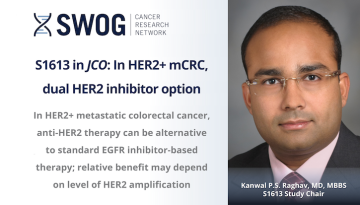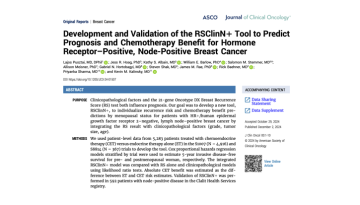Meet SWOG’s Community Advocates
SWOG’s community advocates program has been in place for three years now, and it continues to mature and amaze.
Our primary goal has been to diversify the voices in the room as we plan, design, and conduct clinical trials. Recognizing the limits of our personal perspectives, we want to engage a broader group of advocates who bring the lived experience of their communities and who have strong networks within those communities – communities that have often been underrepresented in our trials.
This means a group of cancer survivors or caregivers diverse in gender, age, race, ethnicity, sexual orientation, socioeconomic status, and varied life and work experiences, such as living in a rural area or having served in the military.
In case you have forgotten or (gasp) didn’t read prior Front Lines:
- Research advocates are our clinical trial experts. They’re embedded in SWOG committees and help develop SWOG protocols.
- Community advocates are our community experts. They work across SWOG committees to provide a front-line patient or caregiver view and advise us on connecting with the communities they represent.
The initial group of community advocates we recruited represented African American, Asian and Pacific Islander, Hispanic/LatinX, advanced/metastatic cancer, and military veteran communities.
With orientation and engagement road-tested, we then expanded the program to try to bring in advocates representing adolescents and young adults (AYA), older adults, LGBTQ+ and rural patients, and caregivers.
At the moment, we have five community advocates on our patient advocate committee:
- Eileen Z. Fuentes, MA, is a community advocate representing the Hispanic/LatinX community. A survivor of triple negative breast cancer, she manages patient relations for Memorial Sloan Kettering Cancer Center, and her advocacy roles include a spot on the NCI’s cancer care delivery steering committee.
- Howard Krongard, JD, is a community advocate representing the older adult cancer community. He is the former inspector general for the US State Department, a participant in the Ironman Registry for men with advanced prostate cancer, and – a former All-American lacrosse player at Princeton – has been inducted into the National Lacrosse Hall of Fame.
- Joël Pointon, MSPH, is a community advocate representing the LGBTQ+ community who, as a prostate cancer survivor, also serves on the genitourinary committee. He’s the founder and principal of a firm that consults on electric vehicle charging infrastructure for multi-unit dwellings, and he’s an active contributor to several groups in the MaleCare HealthUnlocked community.
- Lauren Wagner is the community advocate for the adolescent and young adult cancer committee. Diagnosed with Hodgkin’s lymphoma at 18, she’s a patient and community outreach manager with the Leukemia and Lymphoma Society, and is increasingly making her impact as an advocate felt on social media.
- Bruce A. Wright is a community advocate representing military veterans. A retired US Navy commander, where he served for more than 20 years, he also had a 30+-year career in military aerospace. A survivor of chronic lymphocytic leukemia and prostate cancer with hard-won expertise in negotiating the US Department of Veterans Affairs benefits programs and health system, he’s thus far mentored more than 75 other vets in navigating the same.
These community advocates contribute their insights and knowledge in a range of venues across SWOG.
Community advocate Joël Pointon, for example, spoke as a panelist at the spring group meeting’s symposium on DEI in GU oncology. He also sits on our DEI monitoring committee, saying he sees that role as a chance to help “a broader spectrum of underserved/underrepresented people get the type of healthcare opportunities we all need access to in the fight of our lives.”
Another example is community advocate Bruce Wright’s participation earlier this summer on the patient advocate panel at the SWOG operations global awareness and team-building retreat, where a broad swath of our staff learned more about how our patient advocates contribute to SWOG’s work.
Community advocates will also play essential roles in our continued efforts to ensure diversity, equity, and inclusion in clinical trial participation. With much of the groundwork we need for making our trials more representative now in place – our DEI champions, a DEI monitoring committee, the necessary reporting infrastructure – in the coming year we’ll focus on working with these advocates to collaborate more effectively with the communities they represent.
Finally, it’s worth noting that SWOG is the only NCTN group to have a community advocate role. In fact, Joël Pointon told us that even at ASCO’s sprawling annual meeting, he was aware of no other advocate there who was officially designated as representing the LGBTQ+ community, a circumstance he regularly turned into an opportunity to expand attendees’ concept of the spectrum of diversity that we should be considering.
As I said at the start of this post – we aim to diversify the voices in the room, even when the room is the size of our distributed network.
Other Recent Stories



